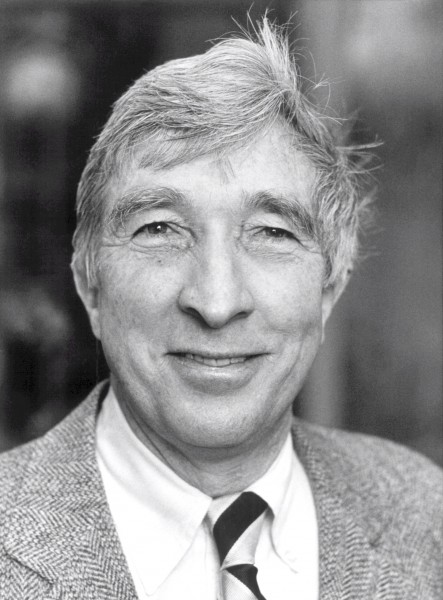John Updike–Peggy Lutz, Fred Murth


It’s well known that John Updike was one of America’s best fictioneers (long and short). What is less well known is that he was also one of our better poets. Having written about Mickey Newbury’s album and song Heaven Help the Child below, we were struck by one of Updike’s poems (written shortly before his passing) on childhood, hometowns and aging. Check out “Peggy Lutz, Fred Murth” below.
“They’ve been in my fiction; both now dead,
Peggy just recently, long stricken (like
my Grandma) with Parkinson’s disease.
But what a peppy knockout Peggy was! –
cheerleader, hockey star, May Queen, RN.
Pigtailed in kindergarten, she caught my mother’s
eye, but she was too much girl for me.
Fred – so bright, so quietly wry – his
mother’s eye fell on me, a “nicer” boy
than his son’s pet pals. Fred’s slight wild streak
was tamed by diabetes. At the end,
it took his toes and feet. Last time we met,
his walk rolled wildly, fetching my coat. With health
he might have soared. As was, he taught me smarts.
Dear friends of childhood, classmates, thank you,
scant hundred of you, for providing a
sufficiency of human types; beauty,
bully, hanger-on, natural,
twin, and fatso – all a writer needs,
all there in Shillington, its trolley cars
and little factories, cornfields and trees,
leaf fires, snowflakes, pumpkins, valentines.
To think of you brings tears less caustic
than those the thought of death brings. Perhaps
we meet our heaven at the start and not
the end of life. Even then were tears
and fear and struggle, but the town itself
draped in plain glory the passing days.
*
The town forgave me for existing; it
included me in Christmas carols, songfests
(though I sang poorly) at the Shillington,
the local movie house. My father stood,
in back, too restless to sit, but everybody
knew his name, and mine. In turn I knew
my Granddad in the overalled town crew.
I’ve written these before, these modest facts,
but their meaning has no bottom in my mind.
The fragments in their jiggled scope collide
to form more sacred windows. I had to move
to beautiful New England – its triple
deckers, whited churches, unplowed streets –
to learn how drear and deadly life can be.”
“Peggy Lutz, Fred Muth”
They’ve been in my fiction; both now dead,
Peggy just recently, long stricken (like
my Grandma) with Parkinson’s disease.
But what a peppy knockout Peggy was! –
cheerleader, hockey star, May Queen, RN.
Pigtailed in kindergarten, she caught my mother’s
eye, but she was too much girl for me.
Fred – so bright, so quietly wry – his
mother’s eye fell on me, a “nicer” boy
than his son’s pet pals. Fred’s slight wild streak
was tamed by diabetes. At the end,
it took his toes and feet. Last time we met,
his walk rolled wildly, fetching my coat. With health
he might have soared. As was, he taught me smarts.
Dear friends of childhood, classmates, thank you,
scant hundred of you, for providing a
sufficiency of human types; beauty,
bully, hanger-on, natural,
twin, and fatso – all a writer needs,
all there in Shillington, its trolley cars
and little factories, cornfields and trees,
leaf fires, snowflakes, pumpkins, valentines.
To think of you brings tears less caustic
than those the thought of death brings. Perhaps
we meet our heaven at the start and not
the end of life. Even then were tears
and fear and struggle, but the town itself
draped in plain glory the passing days.
(Updike’s poem continues with the following lines, which were not read at the cemetery.)
The town forgave me for existing; it
included me in Christmas carols, songfests
(though I sang poorly) at the Shillington,
the local movie house. My father stood,
in back, too restless to sit, but everybody
knew his name, and mine. In turn I knew
my Granddad in the overalled town crew.
I’ve written these before, these modest facts,
but their meaning has no bottom in my mind.
The fragments in their jiggled scope collide
to form more sacred windows. I had to move
to beautiful New England – its triple
deckers, whited churches, unplowed streets –
to learn how drear and deadly life can be.
